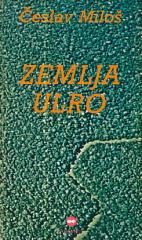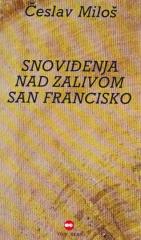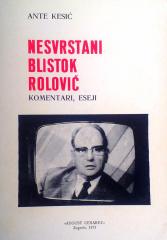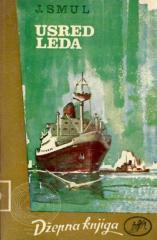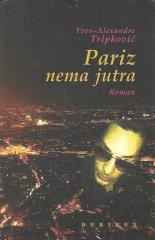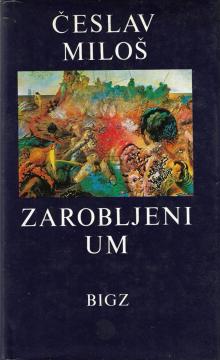
Zarobljeni um
Zasužnjeni um je knjiga koju je 1953. u Francuskoj objavio Czesław Miłosz, ubrzo nakon što je dobio politički azil u Parizu zbog sukoba s komunističkim vlastima u Poljskoj koja je tada bila pod kontrolom SSSR-a.
"Antikomunisti su moju knjigu smatrali sumnjivom jer nisam dovoljno snažno napao komuniste. Ja sam pokušao razumijeti proces i njima se to nije svidjelo. I također je stvorilo ideju, pogotovo na Zapadu, da sam ja politički pisac. To je bila zabuna jer je moja poezija bila nepoznata. Nikada nisam bio politički pisac i jako sam se trudio da uništim tu predodžbu o sebi." - Czesław Miłosz
Knjiga je napisana u obliku struje svijesti te govori o iskustvima autora dok je prebivao u podzemnim krugovima Poljske tijekom Drugog svjetskog rata, njegovom položaju te statusu drugih poljskih intelektualaca u poslijeratnim godinama kao i razmišljanjima o iskušenju kolaboracije sa staljinističkim režimom među intelektualcima u istočnoj Europi. Miłosz navodi da je knjigu napisao "usred velikog unutarnjeg sukoba".
Knjiga započinje raspravom o romanu Nienasycenie koji je napisao Stanisław Ignacy Witkiewicz a u kojem se spominje pilula Murti-Bing, koja, kada ju čovjek proguta, kod njega dovodi do dobrovoljne promjene mišljenja i političkog nadzora, pa je stoga pogodna za prihvaćanje sovjetske verzije komunizma među stanovništvom, ali teoretski i američkog kapitalizma. U drugom poglavlju autor raspravlja kako Poljska i istočna Europa gledaju na Zapad, dok se u trećem spominje vješti trik zavaravanja znan kao Ketman, u kojem se individualac pretvara da tobože prihvaća svjetonazor neke vlade te ga čak javno i glasno propagira, ali u stvarnosti gaji duboki prezir prema istom te, pošto zna da je pogrešan, zna da će što prije propasti što ga se brže proširi među stanovništvom.
Od četvrtog poglavlja Miłosz potom opisuje kako je njegov poljski narod nastradao tijekom fašističke okupacije države u Drugom svjetskom ratu, kao i kako su nastradali kada je pokret otpora dignuo ustanak protiv nacista 1944. kada je crvena armija bila pred vratima Varšave, očekujući da će im se pridružiti u borbi. Međutim, crvena armija je stala i dopustila da nacisti pobiju velik broj Poljaka, kako bi time nestao svaki trag stare, prijeratne poljske vlade te se tako mogla lakše uspostaviti nova prosovjetska poljska vlada. Miłosz govori i o svojim poznanicima, koji su, razočarani i nevoljko, prihvatili služiti novoj poslijeratnoj sovjetskoj vlasti, a nazvao ih je Alpha, Beta - darovit pisac koji je tratio talent na pisanje političkih traktata jer je smatrao da bi sovjetski režim, koliko god loš, ipak osiguravao da se ne ponovi novi Auschwitz - Gama i Delta - koji se pokoravao pisanjem po strogo diktiranom socijalističkom realizmu. Prema nekim mišljenjima, te ličnosti su redom bili Jerzy Andrzejewski, Tadeusz Borowski, Jerzy Putrament i Konstanty Ildefons Gałczyński.
Miłosz završava pisanje sovjetskom aneksijom baltičkih država, u kojem se pita kako su razni baltički narodi izgubili svaki trag sa svojom domovinom i nacijom kada su raseljeni daleko u Aziju kako bi radili u kolhozima, te vlastitim iskustvom kada je prije rata bio na putovanju kroz SSSR te na jednoj željezničkoj stanici usred gomile primjetio jednu poljsku obitelj koja je dala djetetu topli napitak po zimi, zbog čega nije mogao suzdržati suzu u oku jer je podsvjesno to tumačio kao jedinu oazu čovječnosti i topline u tom društvu.
Dva primjerka su u ponudi
Primjerak broj 2
- Žig knjižnice
- Podvlačeno olovkom
